Global Governance
Your Present Location: PROGRAMS> Global Governance-

William Jones: The COVID-19 pandemic requires a rethinking of the world order
New viruses may develop. That is not in our power to prevent. But we can develop the ability and the means to tackle any new such threat if we build the international structures in which the world can act together and not behave as a house divided.
2020-04-08 -
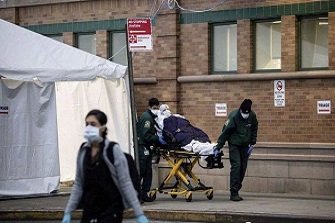
Wang Wen: It's the US, stupid!
One hundred Chinese scholars published "An Open Letter to the People of the United States from 100 Chinese Scholars" in The Diplomat. It appeals for solidarity between China and the US and calls for an end to politicizing the pandemic and demonizing other countries. On Friday, more than 90 prominent figures in US security, diplomatic, business and academic circles also signed a letter calling on the Trump administration to work more closely with China to end the pandemic. The two letters echo each other. Officials and prominent figures from more than 20 countries have expressed their support for the Chinese scholars' letter seeking solidarity and stopping of the blame game.
2020-04-07 -

William Jones: G20 Teleconference Creates New Opportunities
The Chinese word for “crisis” is composed of two characters that respectively signify “danger” and “opportunity.” The coronavirus pandemic has indeed alerted the world to the “danger” lurking amongst us. But the G20 Extraordinary Leaders’ Summit on COVID-19 of March 26 represented a real "opportunity” to advance a coordinated global response to the outbreak, and to create also a new paradigm for humankind to overcome the drawbacks and dangers implied by the prevailing geopolitical status quo.
2020-03-30 -
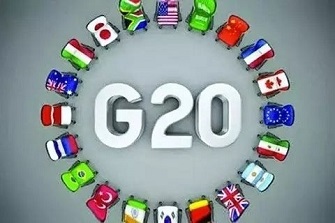
Zhao Minghao: The G20 summit is an urgent step in fight against COVID-19 and economy stabilization
The convening of the G20 emergency summit is a right and urgent step in increasing global coordination and stabilizing economic confidence on the fight against COVID-19. At present, the virus has spread to more than 150 countries, and nearly 500,000 people have been infected worldwide, with the number of confirmed cases and death still rising rapidly.
2020-03-27 -
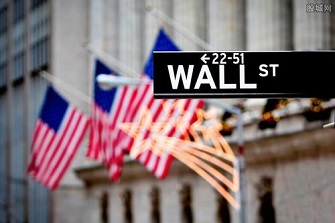
He Yafei: Who Has the Advantage?
The foreign policy of the United States has undergone major changes in recent years. From the Obama administration’s passive response to great-power competition to the Trump administration’s targeting of China and Russia as major strategic rivals, the U.S. has officially given up unipolarity in favor of the new era of great-power competition.
2020-03-25 -
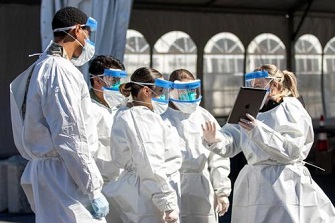
US spin on virus' name condemned
Some US politicians attempting to politicize the novel coronavirus have come under fire as officials, scientists and experts on international relations warned that such stigmatization would undermine international solidarity in containing the pandemic.The warning came after some senior US officials connected the virus with China. They include US President Donald Trump, who described the coronavirus as the "Chinese virus" on social media and a White House media briefing, although Director Robert Redfield of the US Centers for Disease Control and Prevention said using the word Chinese as a way to describe the coronavirus is wrong.
2020-03-20 -
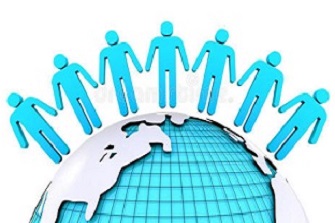
Ding Gang: China, ASEAN see interconnectivity strengthen
The pandemic has had a strong impact on the Southeast Asian economy and around the world. The main export destination for China and Southeast Asian products is the US and European markets. As China has been gradually resuming economic activities, its consumption needs will help the recovery of the Southeast Asia industrial sector. For instance, China can purchase Southeast Asian products as supplements to imports from other parts of the world.
2020-03-19 -

Wang Peng: Western criticism of China proves unjustified as coronavirus victory nears
After the epidemic broke out in China, many countries and international organizations had expressed their support and provided substantial assistance. However, some Western media have looked on at China's misfortune with indifference and even taken pleasure in it. These infamous media outlets, however, instead of practicing "humanitarianism," which they always advocate, and offering a helping hand, scolded China with harsh words and little sympathy.
2020-03-12 -

Fragile EU amid COVID-19 crisis
Europe, after seeing a rapid rise in COVID-19 cases, faces a dilemma of containing the virus spread with strict measures while preventing an economic crisis as the region is on the edge of recession. The reluctance and hesitation of some European officials make a definitive and aggressive approach against the disease "hard to apply in the bloc," analysts said.
2020-03-10 -

Wang Wen: The US owes an apology to the world
The virus is spreading worldwide. The number of new international confirmed cases per day has surpassed China at least 10 times. At this stage, the world needs unity. The US, as the world's most powerful country, should have called on other nations to help combat what has become a common enemy, just as they did during World War II. Unfortunately, they have made no such efforts. After observing the words and deeds of the US administration and other elites, I realized their accusations against China were aimed to divert attention, conceal inaction, and dodge long-standing flaws in US foreign policy.
2020-03-10 -
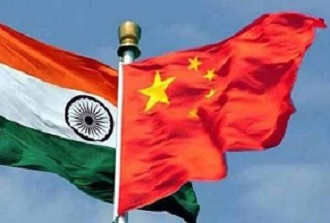
Liu Zongyi: India’s attempt to provoke China over Da Cui Yun incident must be countered
Last year, the Indian Navy blatantly expelled a Chinese scientific research vessel on the high seas near the Andaman Islands, and this year India created an excuse to seize the Da Cui Yun vessel. The Da Cui Yun incident has revealed the arrogance of the Indian government and its governing Hindu nationalists. To consolidate its supremacy in South Asia and the Indian Ocean, India not only has resorted to every means to discredit, isolate and crack down on Pakistan, but also has been trying to act as a "police officer" in the Indian Ocean.
2020-03-09 -

Ding Gang: Are voters ready for Sanders’ socialism?
To observe a development model, one should look at not only its vision for the future, but also its inclusiveness and flexibility. The sustainability of a development model often lies in its openness and inclusiveness. Successful reform depends not only on local culture and traditions, but also on whether it can adapt to changes amid global competition. This may help us understand why the Trump administration is considering using a national disaster program to pay for treatment of uninsured patients infected with the coronavirus.
2020-03-05 -
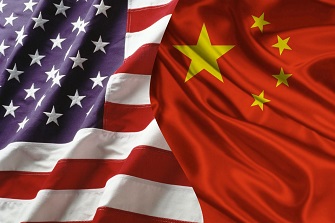
US Cap on Chinese State Media Employees a ‘Return to McCarthyism’
The US Department of State announced Monday that Beijing’s state media entities operating in the US will be subjected to a 100-employee cap, restricting the organizations’ ability to produce content in the US and, as one expert tells Sputnik, the right to free speech.John Ross, a senior fellow at Chongyang Institute, Renmin University of China, and an award-winning resident columnist with several Chinese media organizations, joined Radio Sputnik’s Loud and Clear to discuss the Trump administration’s recent decision and give his opinion on why it came about.
2020-03-04 -

Mostafa Mohammadi: Biosafety challenge calls for greater cooperation
The Covid-19 epidemic is not the first biological threat to humans and will not be the last. There have been several epidemics since the beginning of 21st century, although the West has mostly has managed to avoid the worst, but it does not mean that an epidemic will never seriously trouble those parts of the world. Biological threats are every country's problem, not only those that are most badly challenged by the emergence of a serious public health threat.
2020-03-02 -
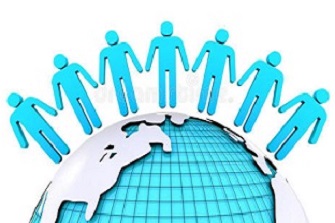
Priyanka Pandit: Global cooperation vital to fight against COVID-19
With the rising cases in South Korea and Japan, it’s clear that no country alone can control an epidemic like COVID-19. Complicating the situation further is the multiple side effects of the virus. Apart from its potentially deadly pathogenic character, the virus leads to social exclusion and exacerbates the already existing differences on biomedical approaches to epidemic control and global health standards. So collective efforts are needed to end the differences in the battle against COVID-19, control its spread and find a cure for it.
2020-02-26 -
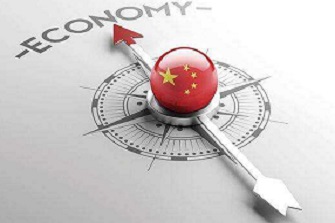
He Weiwen: Virus Economics: Cautious Confidence
The sudden outbreak of the novel coronavirus, COVID-19, caught China totally unprepared just before the Chinese Lunar New Year holiday. China's economy suffered a lot in the epidemi. Interruptions in Chinese supply chains is spreading to other countries, which will influence the global economy. If China has the right policies and pathways, and if it works successfully with the international community, there is a high chance that its economic growth will stay within its trend line over the medium term.
2020-02-20 -

Ong Tee keat: The Unorthodox Lunar New Year
The Year of Rodent in 2020 will leave an indelible mark in my memory as we usher in the Lunar New Year against the gloomy backdrop of the onslaught of Coronavirus. Throughout the history of mankind, virus knows no race or nation state. It could cause an outbreak anywhere. It is the collective responsibility of international community to fight the deadly pandemic concertedly in the interest of human survival.
2020-02-18 -
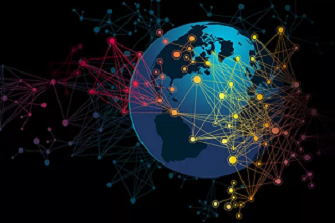
William Jones: Nobody likes a bully
U.S. Secretary of State Mike Pompeo and his sidekick and fellow West Pointer, Defense Secretary Mark Esper, descended on the Munich Security Conference (MSC), like Batman and Robin into Gotham City, to "save" the people from the "evils" lurking around them, in this case China and Russia. "The West is Winning" Pompeo trumpeted triumphantly to what must have been a surprised audience, gathered to discuss how the Cold War was over and that new forms of collaboration between nations had to be established.
2020-02-18 -
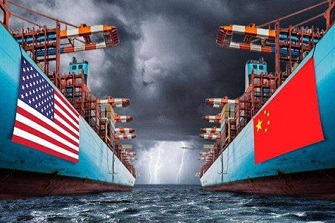
Wang Wen: Too Early To Talk About China-U.S. P2 Trade Agreement
China and the US signed the phase one (P1) trade agreement on Jan. 15, 2020. Additionally, in a recent interview, US Vice President Mike Pence said that negotiations for the phase two (P2) trade agreement are already under way. But in my opinion, the top priority now for the two powers is deciding how to ensure the implementation of the phase one trade agreement.
2020-02-17 -
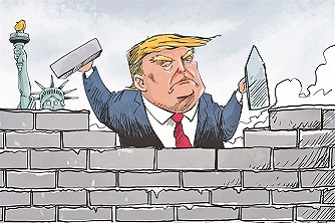
He Weiwen: US’ WHO funding cut plan amid epidemic exposes lack of responsibility
Just as the world is combating the novel coronavirus pneumonia (COVID-19), Ebola and locust plague in Africa, the US government seeks to halve its funding for the World Health Organization (WHO). It's selfish and indifferent moves once again clearly exposes a severe lack of international responsibility. Instead of providing aid as it should have, the US again makes baseless fear-mongering actions and words, all of which have been quelled by China's open, transparent, responsible stance, and its positive cooperation with the WHO.
2020-02-17
























































































 京公网安备 11010802037854号
京公网安备 11010802037854号





